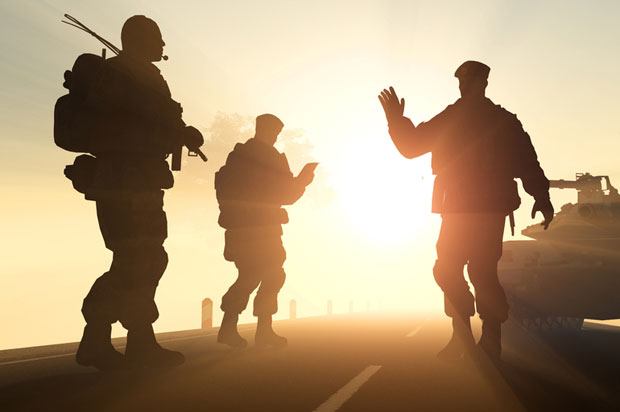Leaving the army
Thinking of leaving the Army, Navy, RAF or Royal Marines? Prepare for a culture shock. We spoke to someone who's already left the armed forces about finding a civilian job and getting emotional support.

It's not as easy as just waving goodbye
Why leave the armed forces?
“I made the decision to leave the army because of a number of factors,” explains 27 year-old Rob, a former Captain in the British Army. “I realised it wasn’t something I wanted to do as a long term career, due to time away on operational tours. Then I worked out that if I didn’t want to make a career out of it, I needed to get out while I was still young enough to start something else.”
Life as a civilian
Rob says the biggest challenge facing anyone leaving the Army, Navy or RAF is the massive change in lifestyle.
“You’re going to an environment where everyone may be supportive and want to help people in your position – people who’ve fought for their country – but ultimately very few of them will understand where you’re coming from, what kind of experience you’ve got and therefore what you are capable of,” he explains.
What to think about financially
The other big problem is more straightforward: money and all those bills and bits of paper you didn’t need to worry about while you were serving.
“The armed forces cover just about everything,” says Rob. “If you have a bit of a big session on the first day of the month and run out of cash, you can just lock yourself inside the camp, take on extra duties and wait for payday to come round without too much trouble. Outside, that doesn’t apply. You have to make sure you can cover your basic bills.”
Rob says you need to consider the following expenses when you’re deciding what kind of job to get and where you want to live:
Support for ex-armed forces
Fortunately, there are plenty of organisations who can assist if you find you need help with retraining, career advice, finding a home or paying bills. Steven Williams, an advisor with SSAFA Forces Help suggests the following:
www.civvystreet.org.uk – for practical advice on completing a CV and helping you translate the skills you already have into civilian-speak, and for grants to help with retraining and vocational courses.
The Regular Forces Employment Association – has regional employment consultants, so you can see someone locally.
The Career Transition Partnership – you should hear about this through your unit welfare officer when you make your decision to leave.
Finding a civilian job
The Ministry of Defence says 96% of ex-armed forces employees are re-employed within six months, but Rob believes many former service men and women don’t get the job they want because they find it hard explain to employers how their military experience is relevant to a civilian job.
“In the army, everything’s decided by rank structure,” he explains. “Outside the army, your career depends on qualifications, skills and experience. Most soldiers leave with good experience, and stronger skills than they might realise. Often, the only thing they need to work on is education.”
Rob left the army without a degree, but still managed to get a job he’s proud of. “If you show a work ethic, show that you’re proactive – for example doing civilian work placements to gain experience before you leave the army – then you will be able to get round any holes in your CV.”
Going AWOL
Both Rob and Steven say the most important thing is to plan in advance – don’t just get up one day and decide you’re quitting. You’re likely to get more sympathy and support from your Commanding Officer if you come up with a concrete plan of action. “The earlier you can start the transition, the better,” says Rob. “The minute you have any kind of doubt about wanting to continue, you should start thinking about what you would do if you were to leave. Start spending as much time in a civilian environment as possible.”
Feeling overwhelmed by stress, and not having a plan for life after the armed services, can lead to feelings of desperation and result in individuals going AWOL (Absent With Out Leave). But don’t give up hope: there is support for you. SSAFA offers a confidential support line on 0800 731 4880. If you find yourself considering this option, Steven Williams urges you to consider the potential repercussions: “You may have difficulties accessing benefits and using your National Insurance number to gain employment. The longer you’re AWOL, the worse you’re going to feel, but it’s not necessarily as bad as you may think.”
Photo of leaving army by Shutterstock
Next Steps
- Chat about this subject on our Discussion Boards.
- Need help but confused where to go locally? Download our StepFinder iPhone app to find local support services quickly.
By Emma Rubach.
Updated on 29-Sep-2015
No featured article














